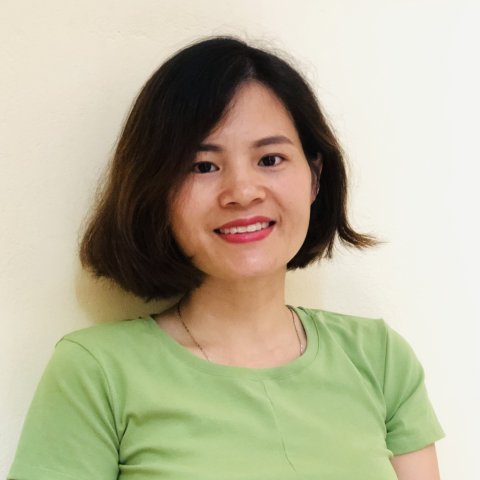By Lauren Azmon
STOP Spillover knows that the spillover and spread of zoonotic diseases can be best prevented at the local level. That’s why STOP Spillover is pleased to introduce Ha Nguyen Ngoc, who leads the consortium’s work in Viet Nam. Ha has more than 14 years of public health experience both in the field and in management. She graduated from Hanoi Medical University, Viet Nam with a master’s degree in Public Health. I sat down (virtually!) with Ha to hear about her vision for STOP Spillover’s work in Viet Nam.
Lauren: Now that STOP Spillover has launched in Viet Nam, what are your goals and aspirations for its future?
Ha: I am happy that the project has officially launched in my country. We hope to learn new methods to reduce the risk of spillover and develop successful models others can follow. Throughout the project we’ll continue meticulously documenting our findings so that the information we gather can be used by other organizations, including the government, to build on our work. I am also looking forward to sharing the best practices across STOP Spillover countries and adopting their best practices as well.
Lauren: What do you think is unique about STOP Spillover?
Ha: I think STOP Spillover is unique because of the experts from diverse fields—human, animal, and environmental health—that it brings together. All of these people need to be in the room to prevent future spillovers and pandemics. Whether it is the Outcome Mapping approach or STOP Spillover’s creation of in-country technical groups called OH-DReaM Working Groups, the consortium is focused on bringing together experts from different sectors who don’t usually work together to address these big challenges.
Lauren: Do you have a favorite book? What is it and why?
Ha: I love so many books, but my favorite is Pour Your Heart into It by Howard Scholtz. The book tells the story of how Starbucks built a worldwide reputation by leading with its heart. The book taught me that success happens when one puts real heart and passion into their work, and I bring this lesson with me to STOP Spillover.
Lauren: Why did you decide to pursue a career in public health, and specifically in One Health?
Ha: I’ve always enjoyed working directly with communities and especially with marginalized groups, so public health seemed like a natural fit. Over the course of my career, I found that a common obstacle to effective community development—especially in public health—is the lack of coordination in solving problems. Coming to the STOP Spillover family is refreshing because of the consortium’s One Health and truly multi-sector and multi-disciplinary approach to this problem.
Lauren: What do you think are the biggest challenges to preventing spillover in Viet Nam?
Ha: First, there are huge knowledge gaps at provincial and local levels when it comes to understanding the spillover ecosystem and how to design interventions that prevent and mitigate spillover. Second, people aren’t prioritizing preventing spillover, and they’re not yet changing their attitudes or behavior as much as they need to. Third, there is a lack of collaboration among different sectors and partners, which can create confusion in local agencies. Lastly, although there are some strong national laws to help prevent zoonotic spillover, they’re not always implemented at the local level.
Lauren: What effect do you think the COVID-19 pandemic has had on the trajectory of spillover efforts?
Ha: The COVID-19 pandemic has had significant impacts for the health sector in Viet Nam. The healthcare workforce has become the frontline unit in contract tracing in addition to diagnosing and treating patients. This influx of additional work has forced a pause on other important health initiatives. But importantly, the pandemic has also reminded us that we can’t solely focus on preparedness and that preventing the next zoonotic spillover is just as important.
Lauren: What advice would you give to local leaders around the world who are working to prevent spillover?
Ha: Preventing the spread of pathogens from animals to humans is not an impossible task, but to do it we must change our mindsets and work together.
